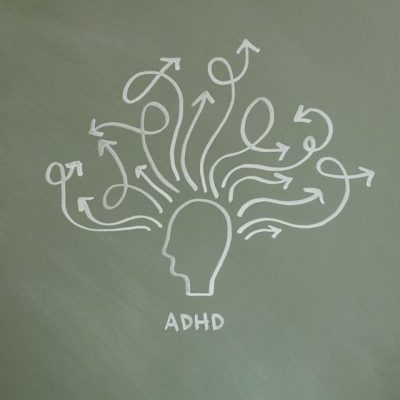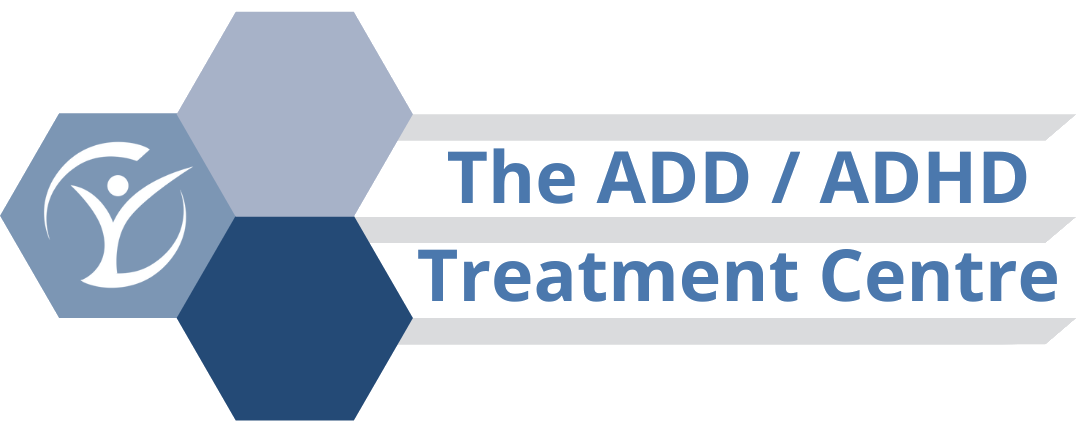Symptoms of ADHD

ADHD symptoms typically begin to develop in childhood, with the condition ultimately affecting only a small number of children. It is sometimes stated that a growing number of children have ADHD. However, this is likely due to more effective and reliable methods for diagnosing the disorder, like with conditions such as Autism. Although ADHD is frequently associated with childhood, and symptoms can improve as a child grows older, some children with ADHD will continue to exhibit symptoms as adults.
Adults living with ADHD can experience numerous difficulties throughout their everyday lives. It can even create unnecessary strain on their work, family life, and relationships. It is important for adults who suspect they have ADHD to recognise the signs associated with it so they can get the assistance they need to live their best lives.
Children with ADHD may appear less developmentally mature and fall behind academically. Other symptoms may include speaking frequently and at length, doing the first thing that comes to mind, having a low tolerance for irritation, being fast to anger, and being unable to focus on work. Adults with ADHD may have similar symptoms, such as difficulty staying focused in the workplace and being easily distracted or forgetful. One of the most common symptoms is difficulty managing time, such as missing deadlines and scheduling appointments.
Traits of Children with ADHD

In essence, there are two main traits displayed in children with ADHD:
1 ) Inhibition of Behaviour
- Inability to suppress response to stimuli, negatively affecting behaviour
- Hyperactivity (but not always)
- Speaking often and at great length
- Cognitive impulsiveness (doing the first thing that pops into their head without due diligence or considering consequences, i.e. a lack of hindsight and foresight)
- Restlessness (very noticeable in children, but becomes more internal as they age, i.e. characterised by the need to always feel busy and do productive things)
2) Emotional Impulsiveness
- ADHD affects a child’s behaviour, words, thoughts, and mind. However, an overlooked component is that it severely impacts on a child’s ability to emotionally regulate themselves (i.e. emotional dysregulation).
- Emotion is closely related to everything a person says and does. Difficulties with emotional regulation can therefore have widespread consequences.
- Signs of emotional dysregulation include a quickness to anger, a low tolerance for frustration, and being unable to conceal emotions (i.e. displaying emotions more quickly.)
- Children with ADHD also commonly display an inability to “self-soothe” and moderate their emotional reaction to be more acceptable to their surrounding contexts and goals (what they hope to accomplish through their interactions.)
It is important to remember that ADHD is not a mood disorder. The symptoms here are drawn from an inability to self-regulate normal emotions, not a chemical excess of emotion.
How does ADHD impact the brain?

ADHD affects the brain in four key ways:
1) Inability to persist towards the future and resist distractions
In order to reach their goals, children with ADHD need to be able to resist distractions. They may find this to be very difficult. Children with ADHD often have difficulty quickly recalling things from the past to help them with the present situation (i.e. hindsight.) Without hindsight, it is therefore hard to anticipate the future (i.e. foresight.)
For children with ADHD, it is unreasonable to expect them to “just get a hold of themselves” as self-control is not learned and it is not the result of upbringing. Self-control is largely neurogenetic in origin. That is to say, our capacity to regulate ourselves is largely down to our inherent traits resultant from our brain and genetics. Although training and specialised social environments can help to enhance self-control, it is not where it originates from.
2) Inability to self-regulate emotions
Equally important is the inability of children with ADHD to self-regulate and direct their own emotions. Our emotions are crucial to our motivations – without motivation, we have no fuel to inspire our future-directed behaviours.
Individuals with ADHD are often dependent on the external environment and the consequences it presents in order to help regulate their tasks / behaviours. If there are no immediate consequences in their environment (or these consequences are delayed), there is no internal motivation for how long / hard they can work. In essence, individuals with ADHD often need to have an immediately rewarding result in order to effectively persist.
For example: Children with ADHD can often play video games for hours but not be able to sit down and do their homework. This is because unlike homework’s words on a page, video games provide continual and immediate stimulus and feedback for their interactions. When a problem is solved on a sheet of paper, nothing happens. The consequences are delayed (i.e. the negative consequences from not getting the work done.)
3) Inability to resist distractions
ADHD effectively generates inhibitor failure. This means individuals with ADHD are more likely to respond to a stimulus then to choose to ignore it. Normally, a person who is distracted will re-engage with their goals after a short period of time. People with ADHD are far less likely to do this.
Typically, there is a pause between events where a response (or appropriate lack thereof) is formulated in the brain. For people with ADHD, their brains usually go directly from event to response. Part of this is due to the lack of an “internalised voice” that drives self-direction. Children with ADHD can find it hard to internalise the context / rules of the situations they are presented.
4) Working memory problems
People with ADHD have what can be effectively termed as a working memory disorder. Working memory helps us remember what we are doing and why. It holds the sequence of steps involved, and provides us with appropriate responses.
Rather than sticking to the plan within working memory, people with ADHD will often find their plans waylaid by compelling stimuli that will capture their attention and drive their behaviour. A lack of working memory means it can be hard to synthesise plans for the future, problem solve, or work out the logistics of a goal at any level.
Symptoms of Adult ADHD

ADHD symptoms can vary from person-to-person. However, the symptoms outlined below are relatively common. Adults living with ADHD may find that they express several of these symptoms. You do not need to express all these symptoms to be diagnosed with ADHD.
One should also note that while some of these symptoms may seem to be contrary to another, with ADHD these can symptoms can coexist or transition from one to another quite quickly. For example, some people with ADHD can find it easy to hyperfocus on tasks they enjoy, but can easily lose all that focus if they find the task boring.
Lack of Focus
Difficulties paying attention, becoming easily distracted, difficulties listening in conversations, overlooking details and/or not completing tasks or projects.
Hyperfocus
Becoming so engrossed in a task that they become unaware of changes in their surroundings. Often causes them to lose track of time and/or ignore those around them. Can lead to misunderstandings in relationships.
Disorientation
Struggling with organisation, difficulties managing time effectively, procrastination on tasks or assignments. Adults with ADHD may be observed as having less in the way of work-related or personal achievements.
Forgetfulness
Forgetting where items are, or losing track of important dates, appointments, and deadlines. This can cause damage to relationships and careers and can be misconstrued by others as carelessness or thoughtlessness.
Impulsivity
Interrupting during conversations, socially inappropriate behaviours, rushing through tasks, acting without consideration of others. A common example in adults is impulse buying or being unable to stand waiting in line. Sometimes, adults with ADHD cannot stand the work that someone else is doing and take over doing it for them.
Emotional dysregulation
Emotions constantly in flux. Can become easily bored or excited. Small frustrations can lead to a lot of anger or depression (mood swings.)
Poor self-esteem
Adults with ADHD are often hypercritical of themselves and have poor self-image. Their inability to concentrate can lead to difficulties during school, work, or in relationships. They may view these difficulties as underperformance, underachievement, and/or personal failures. This only serves to further their poor self-esteem.
Lack of motivation
Difficulties getting started with a task, or carrying through with it to completion, especially if they are disinterested in the task. This can be exaggerated by their tendency to procrastinate and/or poor organisational skills. Adults with ADHD may potentially change employers often (as a result of being laid off or intentionally seeking out different kinds of work.)
Anxiety and restlessness
Adults with ADHD can feel as if their minds never switch off. They can yearn to do a certain thing and become very frustrated or anxious when they cannot. As their minds have difficulties switching off, they may replay worrisome events over and over, leading to severe anxiety. As with children, another sign of restlessness is the inability to sit still – tapping hands or feet, shifting in place, etc.
Fatigue
ThiThis is a common problem in adults with ADHD. It can stem from a number of factors, such as sleep problems caused by restlessness, mental drain from the constant effort required to focus, or even side effects from ADHD medication. Fatigue is perhaps the most common symptom that prompts adults with ADHD to seek treatment.
Health issues
Aforementioned symptoms may cause an adult with ADHD to neglect their health. Common signs are poor eating, neglecting exercise, or forgetting medications. This can form a negative reinforcement cycle where it can make other symptoms worse, feeding back into poorer health.
Relationship issues
Professional, romantic or platonic. Adults with ADHD can inadvertently come across as insensitive, irresponsible, or uncaring to others. This may also result in frequently breaking up with partners, divorce, or a lack of close friendships.
Substance abuse
Adults with ADHD are more likely to misuse alcohol, tobacco, or other drugs.
